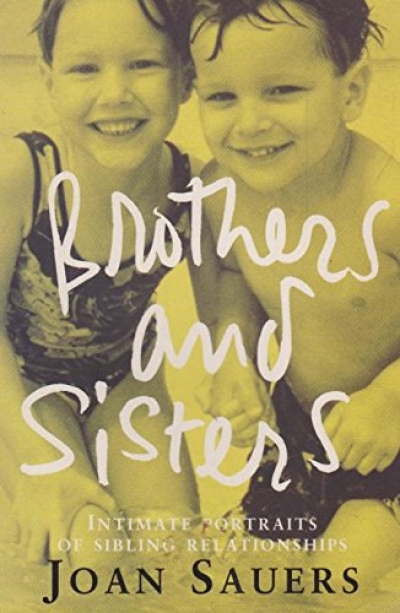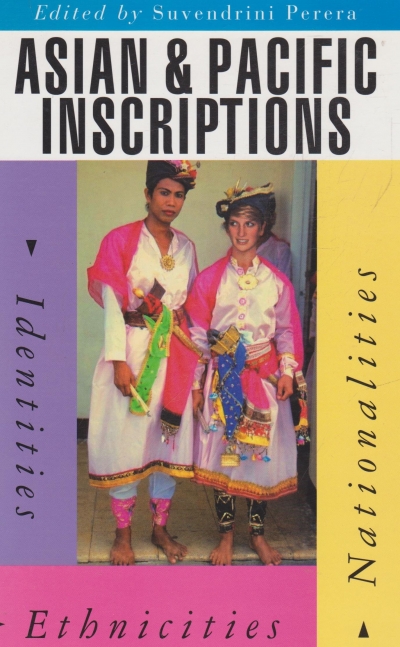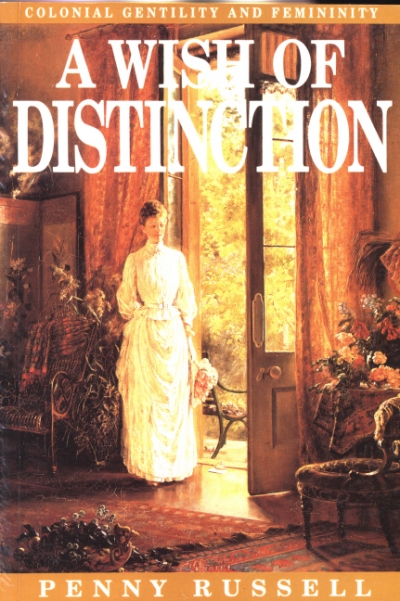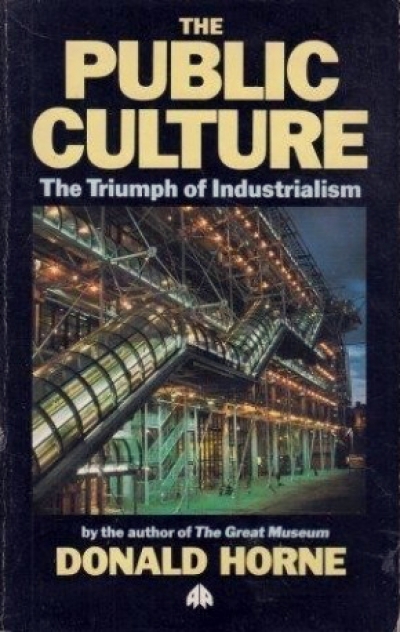Society
Brothers and Sisters: Intimate portraits of sibling relationships by Joan Sauers
Family is surely the house of all feeling. Yet when we are in our early twenties, if not before, part of our dream of being grown up is to imagine the day when we will leave this house. Years later, many of us realise that we never did, that the building may be prison or comfort, but it is also us. How one adapts to this sage correction by time and maturity largely determines the emotional comfort of middle life and beyond.
... (read more)The Virtual Republic: Australia’s culture wars of the 1990s by McKenzie Wark
‘Ken Wark,’ says Linda Jaivin on this jacket, ‘makes postmodernism sexy.’ First cabbages, now postmodernism! Where can she take us from here? The trouble is I don’t believe her. Now that’s too easy a write-off. I’m not instinctually warm to The Virtual Republic, and I think Linda Jaivin’s line is a more than normally meretricious blurb, but Wark’s enterprise is essentially a request for conversation and why not accede to that. Still I want to protest even as I converse. The book is an olive branch masquerading as a polemic. Or, like Lindsay’s parrot who was a swagman, is it the other way round?
... (read more)Asian and Pacific Inscriptions: Identities, ethnicities, nationalities edited by Suvendrini Perera
Once the scourge of the conservatives, some practitioners of cultural studies are starting to make the stuffed shirts of English Departments look like mad-eyed anarchists.
... (read more)The Abundant Culture, Meaning and Significance in Everyday Australia edited by David Headon, Joy Hooton, and Donald Horne
The way we organise our deaths offers insight into the meanings and significances we attribute to life. The sidelining of organised religion has allowed Australians to voice our own ideas about the muddles of existence through the choice of music for funerals. The regularity with which ‘I did it my way’ is heard at wakes is a reminder of how much more pertinent that song is for individuality than are newspaper columns by Bettina Arndt or Hugh Mackay, still less from Andrea Dworkin or the late Christopher Lasch.
... (read more)This book is full of sadly ironic observations, such as: Most adult sons have no memory of telling their mother to stop kissing them; decades later they are simply anguished and resentful that she has shown them no affection.
... (read more)When I started publishing my poems back in the early 1970s, I did so amidst a concern that Australian poetry was being Americanised: Coca-Cola, the pizza parlour, and the rock and rollers’ preoccupation with that thing called ‘lurve’ had swept all that was pure and true into the trashcan of history, and we with our Olsons, O’Haras, and Berrigans were unwitting accomplices to this annulling of our own birthright. My defence at the time would have been, ‘well, we’re taking aboard all that’s repulsive in American culture: their military and economic theses, their particular variety of consumerism, and no-one is protesting much about this – so why do they get so upset when we pick up on something of value from that culture?’ American artists themselves had absorbed things from other cultures without anyone there worrying about it. A great deal of the motivation behind the ‘New York School’ came from the French surrealists, though in translation surrealism had its more harebrained ideological aspects removed painlessly. In fact this ‘translation’ was a model of cultural appropriation, showing what a sea-change (and a change of tongue) can do to some seemingly immutable items.
... (read more)A Wish of Distinction: Colonial gentility and femininity by Penny Russell
Penny Russell could not have chanced upon a better phrase than Jane Austen’s ‘It was rather a wish of distinction … It was the desire of appearing superior to other people’ when she was seeking a title for this book. The colonial gentility of Melbourne, or ‘Society’ if you want to use their understanding of who they were, could only define themselves in terms of who they were not – or who they would never wish to be.
... (read more)A Politics of Poetry: Reconstituting social democracy by Dennis Altman
The cover story of the first issue of The Australian’s new coloured magazine was of five people who had made a million dollars in their twenties. These young people’s achievements were presented for us to admire and to envy. Nowhere in the interviews with them was it suggested that people might be motivated by different values from the ones that drive these lives.
... (read more)It is, of course, impossible to separate this book from the debate partly initiated by Professor Blainey’s comments at a Rotary conference in March of this year, nor is it feasible to judge the book’s merits without considering its likely impact on the continued controversy about the size and composition of Australia’s immigration programme. In many ways, this slim volume will contain few surprises for those who have followed the debate with any degree of interest.
... (read more)The Public Culture: The Triumph of Industrialism by Donald Horne
‘There are not many Australian academics whose conversation shows awareness of the main intellectual dilemmas of the age. (These are nobody’s specialty.)’ So wrote Donald Horne in The Lucky Country, yet Horne, variously academic, editor, journalist, writer, administrator, and Chair of the Australia Council, in his writing himself might be seen as a happy exception to his rule. His latest book, The Public Culture: The triumph of industrialism, continues in the tradition he established previously not only of demonstrating an awareness of intellectual and political dilemmas, but of making these the chief focus of his scholarship.
... (read more)









